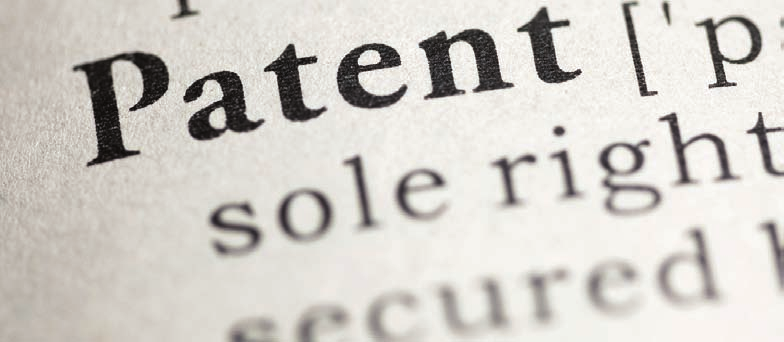
Arbitrability of Disputes Concerning Intellectual Property Rights
In commerce today, commercial documents routinely deal with intellectual property rights of various descriptions as part of the overall transaction. This can be said of mergers, acquisitions, joint ventures, the setting up of special purpose vehicles, technology transfer and sharing agreements, technical tie-ups, licensing, amongst others. The range of fields of activity that could possibly be covered by any one or more of these is limited by nothing but our own imagination. If the prevalent popular view [not supported by any law or judicial precedent] that disputes concerning Intellectual Property Rights are not arbitrable is assumed to be correct, then in all these cases, where intellectual property rights may be dealt with in one way or the other, no dispute arising from any such commercial document could ever be referred to arbitration as a whole. Every single arbitration clause in any such document would actually, in its formulation, be unenforceable.
PUT TO REST THE WRONG NOTIONS - SUPREME COURT HAS NEVER RULED ON ARBITRABILITY OF DISPUTES CONCERNING INTELLECTUAL PROPERTY RIGHTS
It has been the contention in many cases that intellectual property rights such as copyrights, trademarks and patents are rights exercisable against the world at large and are, thus, rights in rem, which cannot be arbitrated upon in view of the decision of the Supreme Court in Booz Allen and Hamilton Inc. v. SBI Home Finance Ltd., reported at AIR 2011 SC 2507 at paragraphs 22, 32, and 45-47 (the “Booz Allen Case”). In the Booz Allen Case, the Supreme Court has listed six categories of disputes which are not arbitrable, namely: (i) disputes relating to rights and liabilities which give rise to or arise out of criminal offences; (ii) matrimonial disputes relating to divorce, judicial separation, restitution of conjugal rights, child custody; (iii) guardianship matters; (iv) insolvency and winding up matters; (v) testamentary matters (grant of probate, letters of administration and succession certificate); (vi) eviction or tenancy matters.
Subsequent to the Booz Allen Case, the Apex Court has, in the case of Vimal Kishor Shah v. Jayesh Dinesh Shah, reported at (2016) 8 SCC 788, added a seventh category to the list of non arbitrable disputes, namely, disputes relating to Trusts.
It has often been argued that the Apex Court in Ayyasamy v. Parameswari, reported at 2016 (10) SCC 386 (“Ayyasamy Case”), has added “Patents, Copyright and Trade Marks” as another category of disputes that are not arbitrable. This argument, in my respectful opinion, is entirely incorrect since the Apex Court’s reference to “Patents, Copyright and Trade Marks” was based on an extract from a commentary on arbitration laws. Importantly, arbitrability of disputes relating to intellectual property rights was not even an issue before the Apex Court in Ayyaswamy’s Case as the issue before the Supreme Court was on arbitrability and fraud. Therefore, these observations are, at best, obiter, which is based on a commentary, and not a decision of any Court. In fact, in Ayyaswamy’s Case, the Supreme Court has, in the same breath, noted, as a “pertinent observation”, that “insofar as the Arbitration and Conciliation Act 1996 is concerned, it does not make any specific provision excluding category of disputes terming them to be non arbitrable”
Therefore, while there has been no deviation from the general principle set out in the Booz Allen Case that rights in rem are not arbitrable, the Supreme Court has yet not decided, considered or excluded disputes relating to intellectual property right from the scope of arbitrability.
WHAT IS ARBITRABLE?
In view of the settled legal position set out in the several judicial precedents discussed in this article, “actionable rights in personam” and “actions in personam” are arbitrable subject matters. Actions in personam will also include actions in respect of rights in rem since not every action filed with respect to a right in rem is an action in rem. Where there are matters of commercial disputes and parties have consciously decided to refer these disputes arising from that contract to a private forum, such disputes cannot be declared as nonarbitrable. Such actions are always actions in personam, i.e., one party seeking a specific particularized relief against a particular defined party, not against the world at large
As a matter of fact, with the decision in Ayyaswamy’s Case (which clarified Booz Allen and Radhakrishnan’s Case), the Supreme Court has further watered down the concept of “non-arbitrability”. The Supreme Court, in the Ayyaswamy’s Case, observed that parties must substantively prove that the disputes are non arbitrable and mere raising of issues, which may be recognised as non-arbitrable subject matter, will not be enough to defeat the mechanism of arbitration. All issues that are civil in nature (within the meaning of Section 9 of the Code of Civil Procedure, 1908), and which arise out of, or are in connection with, the legally defined relationship of Parties (as referred in Section 7 of the Arbitration Act), must be referred to the arbitral tribunal along with objections to arbitrability. On this reasoning, the Hon’ble High Court of Bombay, in Eros International Media Ltd. v. Telemax Links India Pvt. Ltd., reported at 2016 (6) ARBLR 121 (Bom) (‘Eros Case”) and the judgement of the Full Bench of the Hon’ble High Court of Delhi in HDFC Bank Ltd. v. Satpal Singh Bakshi, reported at 2013 (134) DRJ 566 (FB). Even these Courts have held that civil disputes, which are otherwise meant for adjudication by civil courts, are all capable of being arbitrated because there is no express proscription of arbitrability of subject matter in the Arbitration Act.
Applying this judicial and legal position to cases involving intellectual property rights, an action for infringement, which proceeds on the assumption of unauthorised use of an intellectual property rights by a particular person, is an action in personam, and thus arbitrable. Even though the action concerns an enforcement of a right in rem, the substance of the action is an action in personam, given that an adjudication of infringement against one party does not ipso facto mean that the right holder will succeed in an all infringement actions against every other party. An action for infringement of an intellectual property right is still within the jurisdiction of a civil court and therefore arbitrable under all intellectual property statutes. Illustratively, reference may be had to Section 62 of the Copyright Act, 1957 which states in clear terms that every suit (which will include a suit for infringement) shall be instituted in a “district court” (a civil court) having jurisdiction (which means territorial and pecuniary jurisdiction). Intellectual property laws do not confer any exclusivity and it is not possible from such sections, common to many statutes, to infer the ouster of an entire statute. These sections do not themselves define arbitrability or non-arbitrability. For that, the nature of the claim that is made has to be seen.
The further consequence of the judicial precedents discussed in this article is that proceedings involving the “validity” of an intellectual property right or registrability of an intellectual property right would be a proceeding in relation to a right in rem , which could be ousted from the ambit of arbitrability. This must be seen in conjunction with the fact that the adjudication of rights is exclusively within the jurisdiction of specially constituted forums such as the Registrar of Trade Marks, Copyright Board and Patent Controller.
If the notion of non-arbitrability of disputes concerning Intellectual Property rights were to be upheld, then the apprehensions expressed by the Bombay High Court in the Eros Case would come alive since every party, which is in breach of its contractual obligations involving Intellectual Property rights, could circumvent and wriggle out of the arbitral mechanism envisaged under the Contract by raising the defence of the dispute being one of intellectual property rights, and therefore, purportedly being non-arbitrable, when no such restriction exists under the Arbitration & Conciliation Act, 1996 or under any other law.
In conclusion, I would like to state that the Arbitration & Conciliation Act, 1996 is not an enactment that one should constantly try to short-circuit. Ousting arbitrability, in the face of an arbitration clause, is not something to be lightly assumed. It must be done in limited cases, which are clearly non-arbitrable. Unless specifically barred, what a Civil Court can do, an arbitrator can do. It is altogether too broad a proposition to say that no action under intellectual property laws can ever be referred to arbitration. It is a mistake, I think, to see intellectual property laws as relating to rights that stand wholly apart from the general body of law. These are special rights, but they are, at their heart, a species of property and share much with their more tangible cousins.
In this context, therefore, it is only an ‘action’ in rem and not a mere statement of a ‘right‘in rem that would oust the jurisdiction of an arbitral tribunal. Not all actions concerning intellectual property rights are actions in rem, especially disputes concerning infringement of intellectual property rights, which are inherently ‘actions’ against specific parties albeit for enforcement of rights in rem.
Recent Posts

Condition Precedent and Condition Subsequent under the Indian Contract Act, 1872
Jan 2019

Conceptual Similarity of Trade Marks: The Indian Position
Nov 2018

Decoding the ‘Myth’ behind the 2-Part Claim Drafting Format in the context of the Koniklijke Philips’ Case
Oct 2018